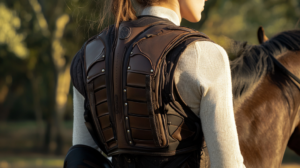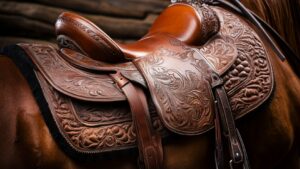Are you planning to buy your first-ever horse? Owning a horse can be a rewarding experience, but it’s essential to understand the costs involved before taking the reins. One of the first questions you might ask is, “How much does the horse cost?” Whether you’re considering buying a horse for pleasure riding, competition, or as a companion, there are several financial factors to consider beyond the initial purchase price. This leads to another important question: how much does a horse cost per year? Understanding the annual expenses—such as feed, veterinary care, hoof care, and stable maintenance—will help you gauge the true financial commitment of horse ownership.
I understand the joy and fulfillment that comes with owning a horse. However, it’s crucial to recognize that horse ownership also entails significant financial responsibilities. Before embarking on this journey, it’s essential to understand the costs involved beyond the initial purchase price. In this article, we will give an insight into what it costs to own a horse aside from the initial purchase price. If you anticipate buying your first horse, this article will help you calculate the cost and expense before making a final decision.
Generally, horse costs can vary from $100 to $10,000, depending on breed, age, sex, amount of training, size, and other variables. For first-time owners, having a budget of around $1,500-3,000 is advantageous because you give yourself more options. You might be able to find a gem below that range, but the more you spend, the better the choices are.
But it’s just the tip of the iceberg because, according to a survey by the University of Maine, the average annual cost of owning a horse is $3,876. That’s quite an amount. But do you need to spend that much? What factors affect the cost of a horse? Let’s dig deep into the reality of horse upkeeping to find the answer.
Upkeep Cost that Affects the Price:
Basic Minimum Costs
Here’s a quick breakdown of the cost of your horse’s basic needs, which includes food and supplements. These costs can vary depending on the area.
- Depending on the place, one-half hay bale costs $3- $10 per day. Your horse may need more than half a bale, though.
- The supply of mineral supplements for six months may cost you $30 or $0.17 daily.
- A salt block costs $14 or $0.04 per day.
- Two cup servings of inexpensive concentrate cost $1.
Manure Management
An equine specialist from the University of Minnesota named Krishna Martinson stated that a 1000-pound horse excretes about 50 lbs of manure and urine daily. Thus, proper disposal and management of horse manure are critical, and here are several options for you:
- Composting is an effective way to manage manure that helps reduce volume, kill pathogens and weed seeds, and enhance soil fertility in your field. However, it requires investment in a compost bin or facility and several types of equipment for piling and spreading large compost piles.
- The second is to opt for a dumpster ranging from $55 to $238 per load. But it depends on the size of the dumpster and how often it is emptied.
- The other way to manage the manure is to hire a company that will haul it off-site once or twice a year. According to Martinson, an outfit can cost $150 per 20-square-yard load, while other businesses’ manure removal quotes range from $100-300 per horse per year.
Horse Facilities
Even if you keep feeding your horse in a pasture and don’t need much hay, you must sum up the facility’s cost. These are the things that can affect the expenses and price of the facility.
- Property, taxes, and insurance
- Fencing to make it livable for your horse
- If the pasture is not enough for the whole year, add up the cost of hay and a storage shed for it
- Tractor for mowing and reseeding of pastures
- A barn with stalls/riding area
- Maintenance for the building and equipment like fencing, paint, watering systems, tank heater
- Gravel, concrete, or replanting of grass to reduce slippage in muddy areas during a thaw
- These show that a facility requires a considerable amount.
Boarding Your Horse
Not everyone can afford to keep a horse home, so boarding is often a good alternative. The monthly boarding fees depend on the facility, location, and services. It can cost anywhere from $100 per month, which has no inside stabling, to over $1000 per month in barns with stalls, individual turnouts, arenas, and other amenities close to urban areas. You must pay for extra services such as farrier, veterinary care, special feed or removal, and putting blankets and fly masks. If you want a less expensive option, you can opt for self-care facilities, but it will require you to supply your feed, bedding, and travel to care for your horse daily.
Health Care Needs
Farrier Care
Your horse’s hooves will keep growing; that’s why you need to get it trimmed frequently. Keeping it healthy and balanced is essential to make your horse feel comfortable and to avoid several health problems. During winter, hooves grow more slowly, so you only need to trim it every 8-10 weeks, but during summer, you need to do it every 6-8 weeks. Trimming may cost $30-$75, while shoeing ranges from $75- $300.
Deworming
Internal parasites are natural parts of the digestive tract of your horse. Some are beneficial, but others can harm your horse and even be fatal. That’s why deworming is critical for your horse’s health. Different types of worms are common in horses, including bloodworms, tapeworms, roundworms, bots, and pinworms. Depending on the type of parasite and severity of infection, your horse may show different symptoms that may include but are not limited to:
- Loss of appetite
- Colic
- Anemia
- Diarrhea
- Fever
- Lethargy
- Sudden weight loss
- Blockage in the intestine
- The dull or poor condition of the coat
So, consulting a veterinarian is very important. If you notice the said symptoms, you should get a proper veterinary diagnosis to determine the exact type of worms and the degree of contamination. A veterinarian will conduct a fecal examination and help to plan an effective treatment. Deworming every three months can cost $0.20 per day.
Dental Care
Regular dental care provides several benefits for your horse. If its teeth were checked annually and the issues were corrected, it would help your horse chew the food better, so there would be less feed wastage and expense and reduced risk of colic or diarrhea. Dentistry once a year at $125 to $250 per year or $0.35 to $0.70 per day.
Vaccination
The AAEP (American Association of Equine Practitioners) recommends vaccinating your horse annually to protect it against the following deadly diseases:
- Tetanus
- Eastern and Western encephalitis
- Rabies
- West Nile virus
Horses that travel and compete have a higher risk of exposure to respiratory illnesses and strangles, so they need more attention and vaccines. Depending on the location, use, and gender of your horse, it may also need vaccinations against the following:
- Influenza
- Rhinopneumonitis
- Strangles
- Potomac horse fever
- Botulism
- Anthrax
- Equine viral arteritis
- Rotavirus
Essential core vaccinations and other routine vaccines may cost $95.00 per year or $0.27 per day.
Coggins/ELISA Testing
Veterinarians conduct this test to check if your horse is infected with EIA (Equine Infectious Anemia). It’s a type of virus that spreads through biting flies, and once tested positive, it will carry the virus for life and will be extremely sick and die. It has no vaccine, so a horse carrying the disease will undergo a strict quarantine protocol or become euthanized. So, having your horse tested will ensure that your horse is not a carrier of the virus. It’ll only cost you $40-60, so you shouldn’t forget it.
Musculoskeletal health
Another aspect you shouldn’t overlook is your horse’s musculoskeletal system. If your horse is an old equine athlete and suffering from degenerative joint disease, you should give him a periodic joint injection and treatment once or twice a year. But it needs more pennies because it costs $400-700. Getting more and having an exam for an accurate diagnosis may also cost you more.
Insurance
Getting insurance for a valuable horse provides financial relief for most horse owners because mortality insurance, for example, reimburses the horse owner if the horse dies. The cost varies depending on the breed, age, and horse use, but generally, you can expect to pay roughly $150 per year for medical coverage expenses worth $5,000.
Equipment and Supplies
Aside from the basic needs, you must invest in some riding equipment, such as a saddle with pads and bridle, protective boots, and grooming tools. A blanket is also necessary during the cold season, especially if the temperature drops to 20 degrees Fahrenheit or below and in windy or wet conditions. The price of a blanket can range from $100-600.
Training
Horses need training, especially youngsters and those with behavioral issues. If it is well-trained, healthy, sound, and well-behaved, you will enjoy riding in them, and you can make more money with them. Bloodline and confirmation are also important, but it would be easy to deal with if your horse is a willing worker and fun to ride on. The lessons and training for horses can vary depending on the training level and experience of the trainer.
Owning a horse involves significant financial commitment beyond the initial purchase price. Consider your budget and ongoing expenses before bringing a horse into your life. Proper planning ensures you can provide your horse with the care and attention it needs for a healthy and fulfilling life together.
So, calculating the total expense, including the asking price of a horse, sales tax, transportation cost, and upkeeping cost, would take a considerable amount. While it may vary from place to place, you need to consider those factors. The initial cost of your horse may seem significant, but the day-to-day care and veterinary emergencies are far higher than the cost of horse ownership.





